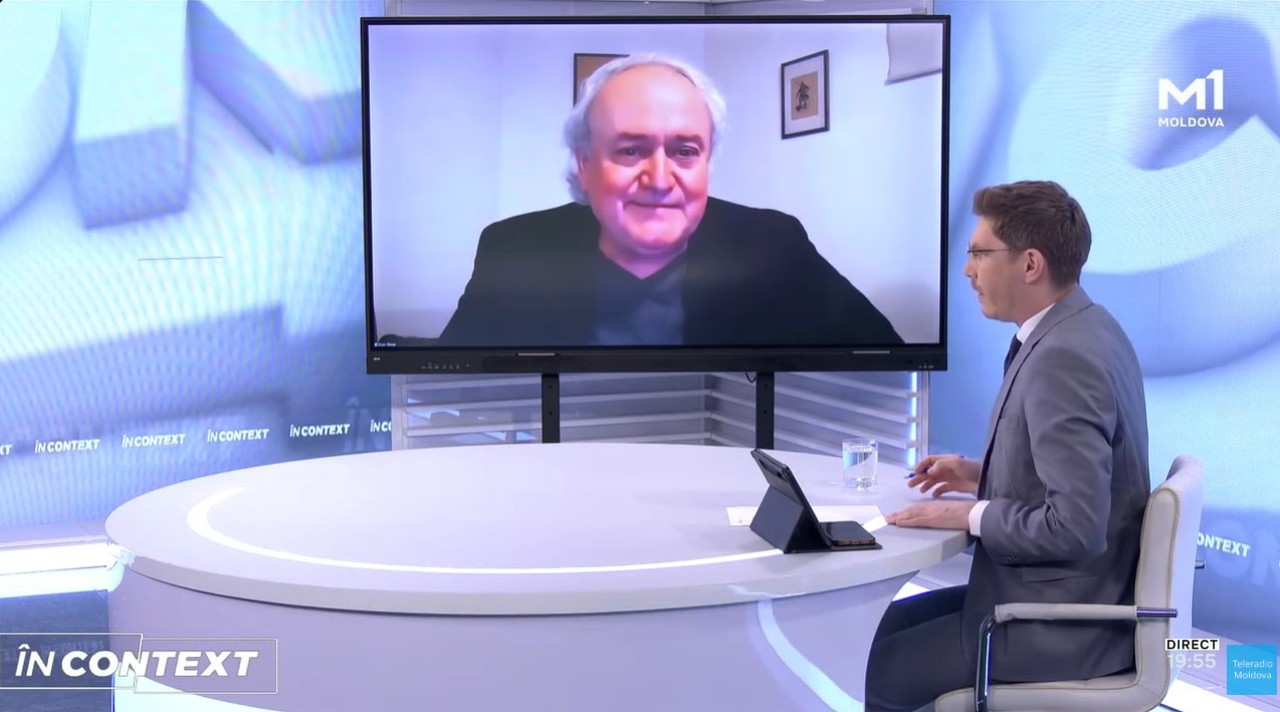Press Review // Moldova adopts euro as reference currency for leu exchange rate
Publications in the Republic of Moldova are focusing on the fact that, starting January 2, the euro became the reference currency for setting the official exchange rate of the Moldovan leu, replacing the US dollar.

As of January 2, 2025, the euro replaced the US dollar as the reference currency in the Republic of Moldova, reflecting the country's economic shift towards the European Union market, its main economic partner, said Anca Dragu, Governor of the National Bank of Moldova, during the "În context" program on Moldova 1.
According to her, this change will reduce fluctuations in the Moldovan leu’s exchange rate against the euro, as well as the differences between the buying and selling rates of the euro.
In other words, this would mean "over 10 million euros saved in currency exchanges, as the exchange transactions themselves will be cheaper," explained the Governor of the NBM during the interview on Moldova 1.
Ziarul de Gardă notes that this shift is essentially an alignment with economic realities, as the European Union is the main source of remittances and foreign direct investments.
The article cites official data showing that over 60% of commercial transactions and 70% of remittances are conducted in euros, making it the most popular currency on the local foreign exchange market.
Europa Liberă highlights that citizens of the Republic of Moldova prefer to pay in euros for a variety of services and products – from cars and apartments to rent and second-hand appliances.
According to Europa Liberă, experts from the National Bank predict that the buying/selling spread between the euro and the leu could decrease by 5 bani (from the current 20 bani to 15).
The shift to the euro as the reference currency is not a political decision, but rather a technical one, analyzed and prepared over several years, said Anca Dragu, Governor of the NBM, quoted by Europa Liberă.
National publications continue to track developments in the energy sector, given that the supply of Russian gas to the Transnistrian region via Ukraine was interrupted at the beginning of the year.
The right bank of the Dniester is currently fully supplied with electricity, said the Government spokesperson, Daniel Vodă, in an interview with Radio Chișinău.
The Russians would have had no technical problem delivering gas to the Transnistrian region through the Trans-Balkan corridor, reports Ziarul Național.
Deschide.md notes that after the dissolution of the Soviet Union, Russian gas remained the primary energy source for most post-Soviet states, including the Republic of Moldova.
Due to Soviet-era infrastructure, Chișinău remained dependent on Gazprom as its main supplier.
Since the early 2000s, Moscow has used price adjustments and changes in delivery volumes as tools of political pressure, with any deterioration in bilateral relations quickly reflected in the bills of Moldovan consumers and the national budget.
However, Chișinău’s response, based on diversification strategies and strengthening ties with European partners, represents a crucial step in reducing vulnerabilities.
The lesson Chișinău must learn is that energy independence cannot be achieved overnight, but once attained, it provides a solid foundation for economic development and political sovereignty, concludes Deschide.md.
Translation by Iurie Tataru





